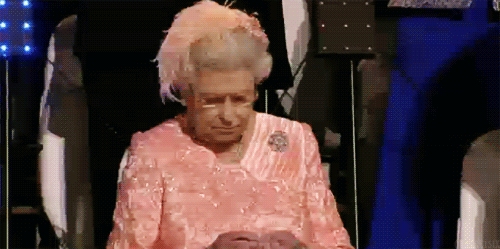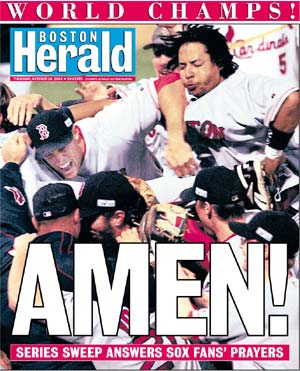"Shabbat is the day we stand still and let all our blessings catch up with us.”Radical Then, Radical Now p. 134
Stop.
Stand still.
Wait.
Who's trying to catch up with you?
“Gam zu l'tova. This too is for the good.” – Nachum Ish Gamzu, Talmud, Taanit, 21a
"Shabbat is the day we stand still and let all our blessings catch up with us.”Radical Then, Radical Now p. 134
“We are all strangers in a strange land, longing for home, but not quite knowing what or where home is. We glimpse it sometimes in our dreams, or as we turn a corner, and suddenly there is a strange, sweet familiarity that vanishes almost as soon as it comes.” -- Madeline L'Engle
 |
| Jug matching. |
Elisha came into the house, and there was the boy, laid out dead on his couch. He went in, shut the door behind the two of them, and prayed to the Lord. Then he mounted [the
bed] and placed himself over the child. He put his mouth on its mouth, his eyes on its eyes, and his hands on its hands, as he bent over it. And the body of the child became warm. He stepped down, walked once up and down the room, then mounted and bent over him. Thereupon, the boy sneezed seven times, and the boy opened his eyes. [Elisha] called Gehazi and said, "Call the Shunammite woman," and he called her. When she came to him, he said, "Pick up your son." She came and fell at his feet and bowed low to the ground; then she picked up her son and left.
 The amount of pain we can carry with us on our everyday journeys is astounding. Everywhere you go, people are in pain -- physical pain, emotional pain, psychological pain, financial pain. For the past week I've had intermittent jaw/ear pain that makes me want to stab myself in the head with a screwdriver. (I won't.) Then I take some more ibuprofen, get out the heating pad, and it recedes to a dull ache. At times I even forget the pain unless I think about how the pain is gone. Thanks, brain, for that trick.
The amount of pain we can carry with us on our everyday journeys is astounding. Everywhere you go, people are in pain -- physical pain, emotional pain, psychological pain, financial pain. For the past week I've had intermittent jaw/ear pain that makes me want to stab myself in the head with a screwdriver. (I won't.) Then I take some more ibuprofen, get out the heating pad, and it recedes to a dull ache. At times I even forget the pain unless I think about how the pain is gone. Thanks, brain, for that trick. |
| "The Sacrifice of Isaac" by VALDÉS LEAL, Juan de 1657-1659 |
 Boring lives make for terrible literature. If Adam and Eve never got kicked of of the Garden of Eden, would we care who they were? If Odysseus had a pleasant sailing trip and returned on time and happily to Penelope, would we still be telling the tale? What if Hamlet had just shrugged and said, "Meh. To be."
Boring lives make for terrible literature. If Adam and Eve never got kicked of of the Garden of Eden, would we care who they were? If Odysseus had a pleasant sailing trip and returned on time and happily to Penelope, would we still be telling the tale? What if Hamlet had just shrugged and said, "Meh. To be." |
| "Old Man in Sorrow" -- Vincent Van Gogh |
 |
| Where are these when we really need them? |
 God: You're a pretty good guy, the best of every human alive on earth. But I'm disappointed in my own creation and have decided to kill everyone but your immediate family in a horrible flood. Start building a boat and you'll survive.
God: You're a pretty good guy, the best of every human alive on earth. But I'm disappointed in my own creation and have decided to kill everyone but your immediate family in a horrible flood. Start building a boat and you'll survive.“The notion that 2 months or 3 months after something as horrific as what happened in Newtown happens and we’ve moved on to other things, that’s not who we are. That’s not who we are. Now, I want to make sure every American is listening today. Less than 100 days ago that happened, and the entire country was shocked. And the entire country pledged we would do something about it and that this time would be different. Shame on us if we’ve forgotten. I haven’t forgotten those kids. Shame on us if we’ve forgotten.” —President Barack Obama (March 28, 2013)*
 86 years of cursedness. Gone. We had believed, and we had been rewarded. We had hung in there, and we had been rewarded.
86 years of cursedness. Gone. We had believed, and we had been rewarded. We had hung in there, and we had been rewarded. In the second Creation account of Genesis, after God formed man from the dust of the earth and placed him in the garden of Eden, God says, “It is not good for the man to be alone. I will make a helper suitable (ezer knedgo) for him” (2:18).
| לב וְאֶת-עַצְמוֹת יוֹסֵף אֲשֶׁר-הֶעֱלוּ בְנֵי-יִשְׂרָאֵל מִמִּצְרַיִם, קָבְרוּ בִשְׁכֶם, בְּחֶלְקַת הַשָּׂדֶה אֲשֶׁר קָנָה יַעֲקֹב מֵאֵת בְּנֵי-חֲמוֹר אֲבִי-שְׁכֶם, בְּמֵאָה קְשִׂיטָה; וַיִּהְיוּ לִבְנֵי-יוֹסֵף, לְנַחֲלָה. | 32 And the bones of Joseph, which the children of Israel brought up out of Egypt, buried they in Shechem, in the parcel of ground which Jacob bought of the sons of Hamor the father of Shechem for a hundred pieces of money; and they became the inheritance of the children of Joseph. |
Our Father who is in heaven, Protector and Redeemer of Israel, bless the State of Israel, the dawn of our deliverance. Shield it beneath the wings of Your love; spread over it Your canopy of peace; send Your light and Your truth to its leaders, officers, and counselors, and direct them with Your good counsel.
Strengthen the defenders of our Holy Land; grant them, our God, salvation and crown them with victory. Establish peace in the land, and everlasting joy for its inhabitants. Remember our brethren, the whole house of Israel, in all the lands of their dispersion. Speedily bring them to Zion, Your city, to Jerusalem Your dwelling-place, as it is written in the Torah of Your servant Moses:
“Even if you are dispersed in the uttermost parts of the world, from there the Lord your God will gather and fetch you. The Lord your God will bring you into the land which your ancestors possessed, and you shall possess it; and God will make you more prosperous and more numerous than your ancestors.”
Unite our hearts to love and revere Your name, and to observe all the precepts of Your Torah. Speedily send us Your righteous Messiah of the House of David, to redeem those waiting for Your salvation. Shine forth in Your glorious majesty over all the inhabitants of Your world. Let everything that breathes proclaim: “The Lord God of Israel is King; His majesty rules over all.” Amen. Selah.
i carry your
heart with me(i carry it in
my heart)i
am never without it(anywhere
i go you
go,my dear; and whatever is done
by only me
is your doing,my darling)
i fear
no fate(for
you are my fate,my sweet)i want
no
world(for beautiful you are my world,my true)
and it's
you are whatever a moon has always meant
and
whatever a sun will always sing is you
here is the
deepest secret nobody knows
(here is
the root of the root and the bud of the bud
and the sky
of the sky of a tree called life;which grows
higher than
the soul can hope or mind can hide)
and this is
the wonder that's keeping the stars apart
i carry
your heart(i carry it in my heart)
|
יהי שלום בחילך שלווה בארמנותיך
| |
Yehi shalom becheylech shalva b'armenotayichPeace be within your walls, prosperity within your palaces | |